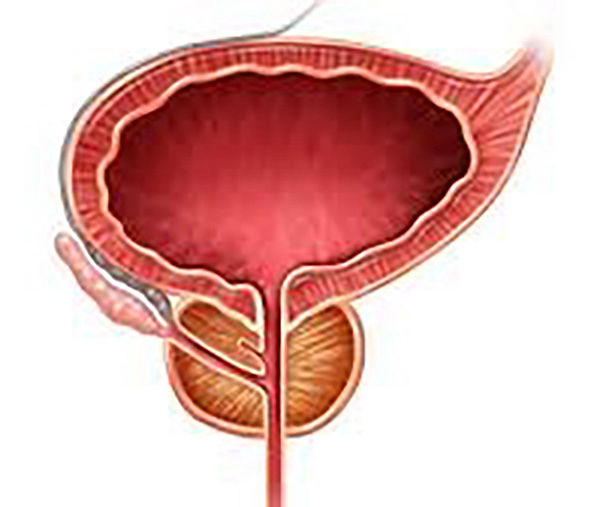The prostate gland sits at the base of the bladder. The doctor can feel it with a gloved finger in the rectum. (The patient’s rectum, not the doctor’s.) A normal prostate feels like a small plum, with a ridge down the middle. The prostate makes most of your sperm, ie the milky liquid part. Mostly we seem to think of it as a problem, but it’s a really important structure. The urethra goes through the middle, carrying sperm and urine. And lots of fine nerves pass through it, controlling erections, bladder function and ejaculation. Unfortunately most men only discover the importance of all these functions after surgery to remove it, with permanent impact on these precious functions.
Three Things That Go Wrong with prostates.
1. Prostatitis. Usually in younger men, say 20-50, this is inflammation or infection and gives urine symptoms that persist, or an aching. A urine test after prostate massage can diagnose the culprit organism, and the treatment is likely to be a long course of antibiotics.
2. Enlarged prostate, or BPH if you love acronyms. Usually over 50 yo. Getting up for a wee a few times at night, waiting to start, or a poor stream suggest this may be the problem. Happily, there has been a strong move away from surgeons in treating this condition, and towards tablets, which usually work well. If it is not causing harm, or bothering the man, no treatment is needed.
3. Prostate cancer. At one end of the spectrum, this can be a terrible condition, spreading to bones and causing the death of more Australian men than breast cancer does in women. But it is also very common; if we look carefully enough, perhaps all men after age 80 have some microscopic prostate cancer, and in most cases it will cause no harm at all. This wide spectrum of behaviour of prostate cancer creates a difficult dilemma for men and for doctors. The aim of GPs and Urologists in recent years is to avoid surgery or other destructive treatment in low grade prostate cancer. It comes as a surprise to some men, after biopsy, to be given a diagnosis of ‘cancer’ and then be told no treatment is required, just surveillance. But it is correct and safe to do so in low grade cancer, so long as monitoring takes place, and it is an acknowledgement that, in the past, many men were rendered impotent and incontinent by destructive surgery which might have been avoided.
